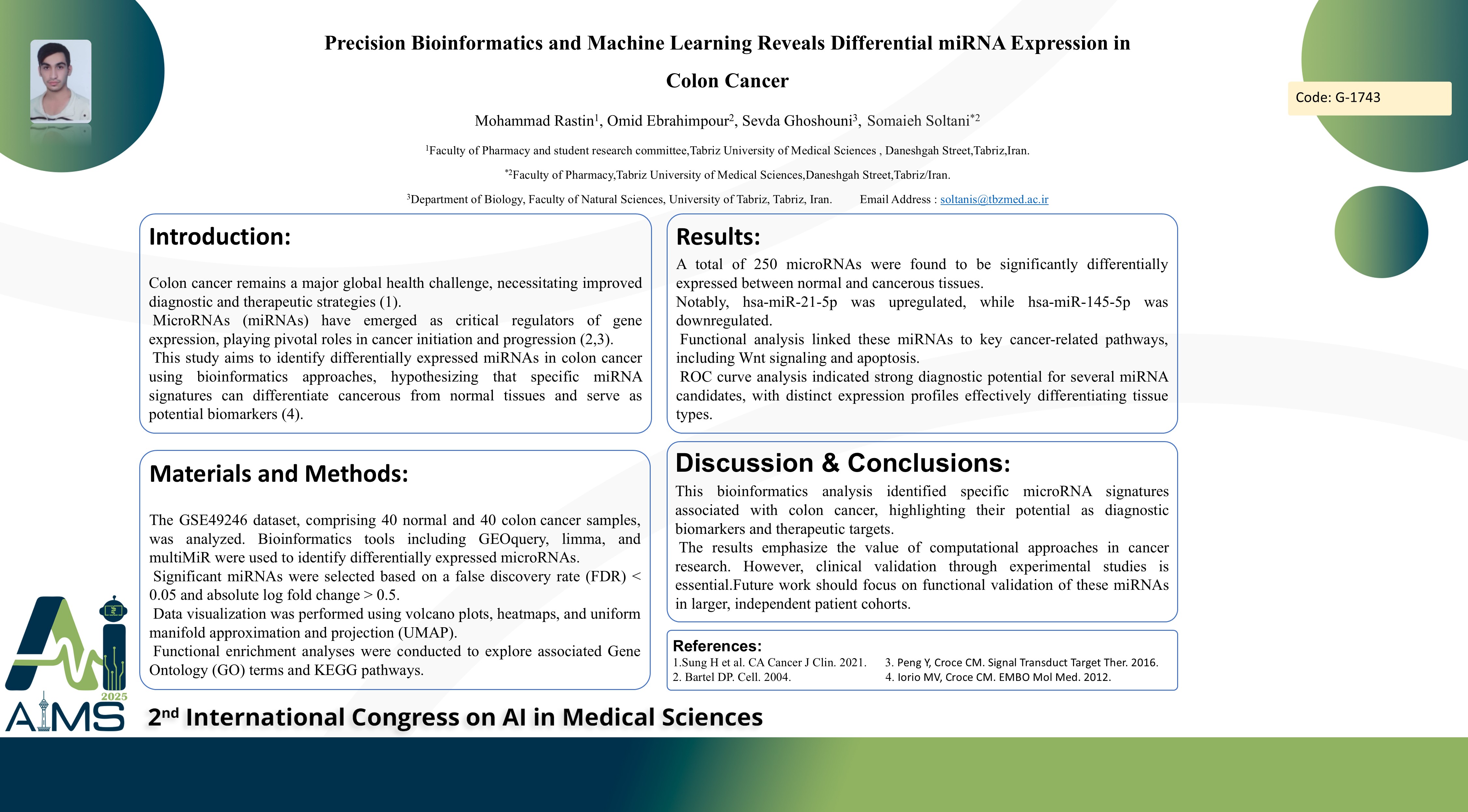Precision Bioinformatics and Machine Learning Reveals Differential miRNA Expression in Colon Cancer
Code: G-1743
Authors: Mohammad Rastin ℗, Somaieh Soltani *, Omid Ebrahimpour, Sevda Ghoshouni
Schedule: Not Scheduled!
Tag: Biomedical Signal Processing
Download: Download Poster
Abstract:
Abstract
Background and aims: Colon cancer remains a significant global health challenge, necessitating improved diagnostic and therapeutic strategies. MicroRNAs have emerged as key regulators of gene expression in cancer development. This study aims to identify differentially expressed microRNAs in colon cancer using bioinformatics approaches, with the hypothesis that specific microRNA signatures can distinguish cancerous from normal tissues and serve as potential biomarkers. Method: The study analyzed the GSE49246 dataset containing 40 normal and 40 colon cancer samples. Bioinformatics tools including GEOquery, limma, and multiMiR were employed to identify differentially expressed microRNAs. Statistical thresholds were set at false discovery rate less than 0.05 and absolute log fold change greater than 0.5. Visualization techniques included volcano plots, heatmaps, and uniform manifold approximation and projection. Functional enrichment analyses examined gene ontology terms and Kyoto Encyclopedia of Genes and Genomes pathways. Results: Analysis revealed 250 significantly differentially expressed microRNAs between normal and cancerous tissues. Key upregulated microRNAs included hsa-miR-21-5p, while hsa-miR-145-5p was notably downregulated. These microRNAs were associated with critical cancer pathways such as Wnt signaling and apoptosis. Receiver operating characteristic analysis demonstrated strong diagnostic potential for several microRNA candidates, with distinct expression patterns clearly differentiating tissue types. Conclusion: This comprehensive bioinformatics analysis identifies specific microRNA signatures associated with colon cancer, highlighting their potential as diagnostic biomarkers and therapeutic targets. The findings underscore the value of computational approaches in cancer research, though clinical validation through experimental studies remains essential for translation into medical practice. Future research should focus on functional validation of these microRNAs in larger patient cohorts.
Keywords
Colon Cancer, MicroRNA, Bioinformatics, Biomarkers
